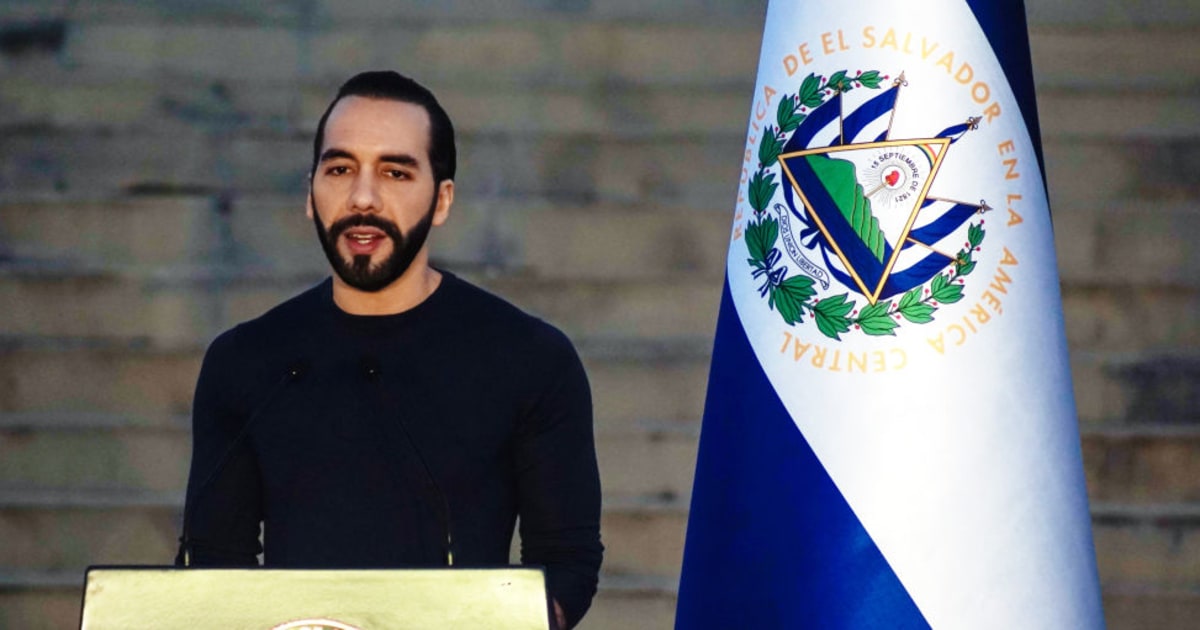Protest against Nayib Bukele in San Salvador, on September 5 VICTOR PENA / Reuters
More information
El Salvador: demolishing judicial independence
El Salvador is one of the states that best represents the processes of democratic erosion that occur in Latin America. It is a phenomenon characterized by the concentration of power (generally in populist leaders), the curtailment of freedoms, the reduction of human rights to mere formal guarantees, the co-optation of institutions to put them at the service of a political project or the elimination of those who resist losing their autonomy and independence. This process - which begins with phenomena of abusive constitutionalism and degenerates into authoritarian regimes - is characterized by its slowness and imperceptibility. These two characteristics mean that each of its advances is not seen in itself as highly undemocratic. Nevertheless,Each step is just one link in a larger and more consolidated process of destroying the foundations of the democratic system.
That is precisely what has happened in El Salvador under the government of Nayib Bukele. Before the pandemic, the president of that country led the military assault on the premises of the Legislative Assembly as a mechanism to intimidate the Parliament that opposed his policies. During the strongest stage of the pandemic caused by COVID-19, Bukele used the risk of contagion both to adopt disproportionate restrictions on human rights and to abuse the figure of states of exception. The president even appealed to expressions with strong repressive connotations when he ordered the Armed Forces to bend the wrists of those who did not comply with the confinement measures decreed by the Government. After the pandemic,the disputed parliamentary elections took place, which gave an absolute majority to the governing party (New Ideas) within the legislative body.
In this context, in El Salvador (as in Brazil) the judiciary has acted as a containment mechanism for the processes of democratic erosion. However, this role of containment generates strong reactions from the Executive branch. The first strategy is to try to co-opt the judiciary. However, when it resists, legislative and constitutional mechanisms are used to reform it with the aim of limiting its powers or restricting the scope of its decisions. Finally, if the resistance persists, the choice is made for the removal of its members or for the definitive elimination of the judicial institutions.
This formula is well known in countries like Hungary, Poland or Venezuela. In El Salvador, the president began by disqualifying members of the judiciary who made decisions contrary to his policies. Likewise, it directly violated judicial orders that protected basic freedoms (for example,
habeas corpus
) or limited the margin of action of the Armed Forces to control the restrictions imposed in connection with the pandemic. Once it won the majority in the Assembly, the Bukele government escalated its attack against the judiciary. On the one hand, he dismissed the Constitutional Chamber of the Supreme Court of Justice and the attorney general. Likewise, it reduced the retirement age to 60 years and the period of service (30 years) of the judges. In this way, approximately 160 judges will have to leave their positions soon.
The decision to remove judges over 60 years of age from office adds to a long list of human rights violations. Since the beginning of his mandate in June 2019, the Administration of President Bukele has promoted measures that harm the human rights of persons deprived of liberty, freedom of expression and the independence of justice operators. Bukele has also disappointed the trust of thousands of Salvadoran women who believed in his promise to advance the decriminalization of any form of pregnancy termination.
The Bukele government has worsened El Salvador's already lamentable human rights curriculum. Since the signing of the Peace Agreement between the Farabundo Martí Liberation Front and the Salvadoran Government in 1992, El Salvador has faced enormous difficulties in consolidating the rule of law. After its 2019 visit, the Inter-American Commission on Human Rights (IACHR) stressed that "many of the human rights problems that affect the country are structural, and several of them have been pending since the armed conflict." Since that IACHR visit, Bukele has already shown signs of his contempt for international human rights standards.
Thus, with the recent decisions, El Salvador descends one more rung in its already very long ladder of human rights violations and climbs several on its way to the consolidation of an authoritarian system.
María Daniela Díaz Villamil
and
Jorge Ernesto Roa Roa
are Human Rights professors in the Constitutional Law Department of the Externado de Colombia University and Public Agenda analysts.




/cloudfront-eu-central-1.images.arcpublishing.com/prisa/MYQ5IMFXJZF4NGVYA5PCRZJJCM.JPG)
/cloudfront-eu-central-1.images.arcpublishing.com/prisa/RHYRDMQQ7BG5JOUSKAXBLKE6YE.jpg)


/cloudfront-eu-central-1.images.arcpublishing.com/prisa/TR3MCYPNXNCGBP24HQVCJPKEX4.jpeg)
